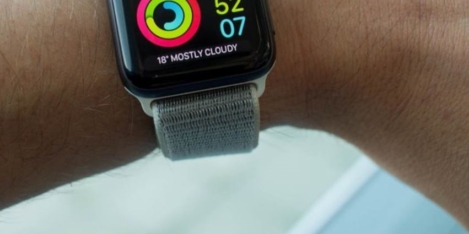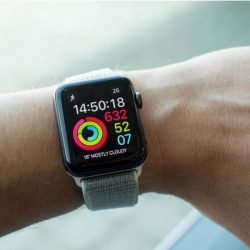To provide the best experiences, we use technologies like cookies to store and/or access device information. Consenting to these technologies will allow us to process data such as browsing behaviour or unique IDs on this site. Not consenting or withdrawing consent, may adversely affect certain features and functions.
The technical storage or access is strictly necessary for the legitimate purpose of enabling the use of a specific service explicitly requested by the subscriber or user, or for the sole purpose of carrying out the transmission of a communication over an electronic communications network.
The technical storage or access is necessary for the legitimate purpose of storing preferences that are not requested by the subscriber or user.
The technical storage or access that is used exclusively for statistical purposes.
The technical storage or access that is used exclusively for anonymous statistical purposes. Without a subpoena, voluntary compliance on the part of your Internet Service Provider, or additional records from a third party, information stored or retrieved for this purpose alone cannot usually be used to identify you.
The technical storage or access is required to create user profiles to send advertising, or to track the user on a website or across several websites for similar marketing purposes.
 People are three times more likely to discuss common physical ailments over mental health issues at work according to a new study published to coincide with Mental Health Awareness Week (13-19 May). The OnePoll survey of 2,000 employed adults reveals that, on average, 42 percent of employees feel comfortable discussing prevalent physical conditions, compared to just 14 percent who feel they can talk about common psychological issues. (more…)
People are three times more likely to discuss common physical ailments over mental health issues at work according to a new study published to coincide with Mental Health Awareness Week (13-19 May). The OnePoll survey of 2,000 employed adults reveals that, on average, 42 percent of employees feel comfortable discussing prevalent physical conditions, compared to just 14 percent who feel they can talk about common psychological issues. (more…)










 Despite
Despite 




 Not-for-profit, wellbeing provider Westfield Health has launched an online initiative to support workplace health and wellbeing which will educate employers across the UK on how they can make a positive difference within their organisation. With over half (54 percent) of businesses reporting that they don’t have any measures in place to support the health and wellbeing of their staff,
Not-for-profit, wellbeing provider Westfield Health has launched an online initiative to support workplace health and wellbeing which will educate employers across the UK on how they can make a positive difference within their organisation. With over half (54 percent) of businesses reporting that they don’t have any measures in place to support the health and wellbeing of their staff, 
 Workers in the UK are putting the longest hours in the EU, according to a new
Workers in the UK are putting the longest hours in the EU, according to a new 
















May 1, 2019
Your company has a culture, whether you have designed one or not
by Jonathan Richards • Comment, Workplace
(more…)